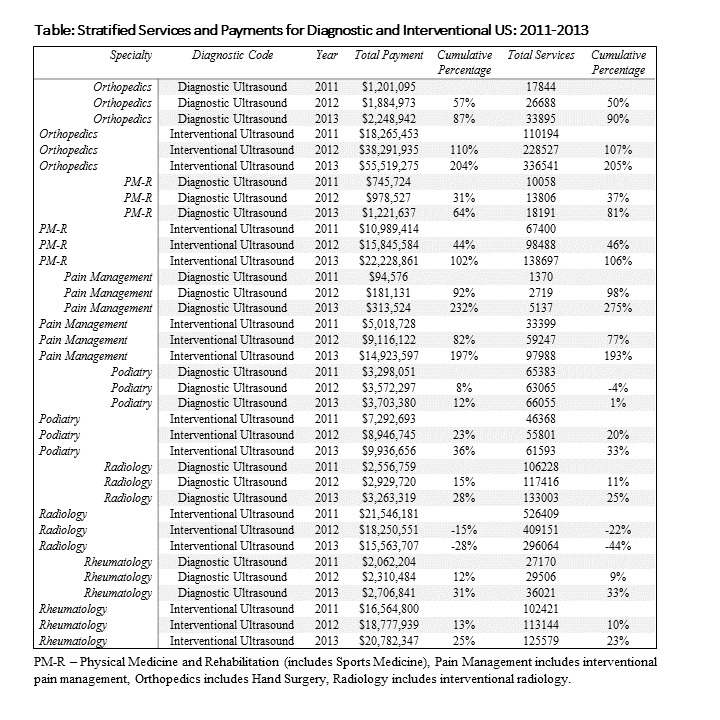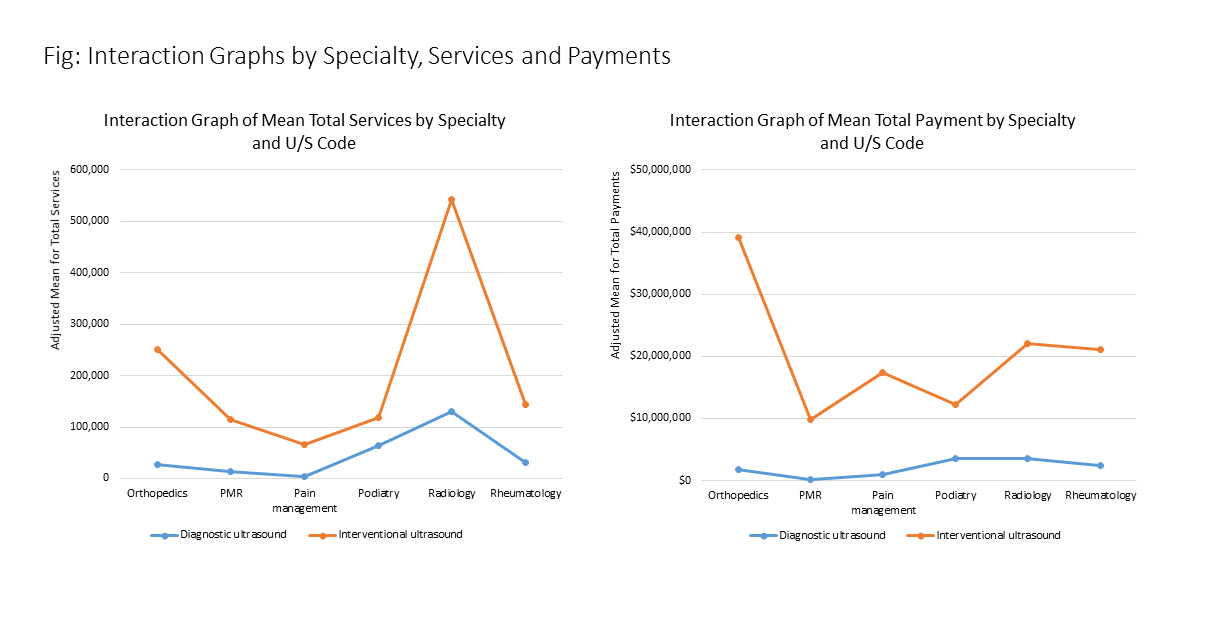Session Information
Session Type: ACR Concurrent Abstract Session
Session Time: 2:30PM-4:00PM
Background/Purpose:
MSK-US use has risen in the USA with recent disturbing findings suggesting greater utilization of interventional ultrasound by non-noradiologists compared to Radiologists. (1) This study evaluated utilization of diagnostic and interventional MSK-US within the Medicare population in the USA from 2011 – 2013. Our objectives were to estimate the rate of MSK-US utilization by MSK specialties, compare the cumulative growth of services and payments as well as determine time trends of utilization within the study period.
Methods:
A retrospective cross-sectional analysis of Medicare Physician Supplier Payment Summary (PSPS) files from 2011 – 2013 was used to tabulate services and total payments on utilization. PSPS data is aggregated by multiple factors but excludes technical costs such as those billed by Radiology. Therefore, service count data more accurately reflects utilization across specialties. CPT 76881, 76882; and 76942 were coded as diagnostic ultrasound and interventional ultrasound respectively. Non-duplicative billing claims of these codes were summed for each years and provider specialty. Descriptive and statistical (ANOVA) analysis was conducted using SAS® for Windows Ver. 9.4.
Results:
There was greater utilization of interventional than diagnostic ultrasound among all MSK providers except Podiatry. (Table, Fig) Amongst non-radiology groups, a cumulative growth of up to 205% and 273% was seen in interventional and diagnostic ultrasound respectively, while there was a decrease in Radiology interventional services. Orthopedics and Rheumatology had higher mean number of services and payments compared to all other non-radiology specialties (p<0.05). (Fig)
Marked dissociation of interventional MSK-US services from diagnostic services was seen in most MSK specialties. Orthopedics ranked highest for MSK-US interventional services. Lack of corresponding diagnostic billing could be due to bundling of diagnostic services or inability to acquire and bill diagnostic ultrasound. Although the rapid rise of utilization of interventional MSK-US could reflect innovation in care, it is not clear if addition of MSK-US ultrasound guidance on a population level leads to better value care. Medicare reimbursement of interventional MSK-US procedures has been reduced which may lead to a better value proposition and moderated utilization.
References:
1. Sharpe RE, Jr., Nazarian LN, Levin DC, Parker L, Rao VM. The increasing role of nonradiologists in performing ultrasound-guided invasive procedures. Journal of the American College of Radiology : JACR. 2013;10(11):859-63.
To cite this abstract in AMA style:
Kaeley GS, Kraemer D, Smotherman C, Dodani S. Musculoskeletal Ultrasound (MSK-US): Innovation or Overutilization? [abstract]. Arthritis Rheumatol. 2015; 67 (suppl 10). https://acrabstracts.org/abstract/musculoskeletal-ultrasound-msk-us-innovation-or-overutilization/. Accessed .« Back to 2015 ACR/ARHP Annual Meeting
ACR Meeting Abstracts - https://acrabstracts.org/abstract/musculoskeletal-ultrasound-msk-us-innovation-or-overutilization/


